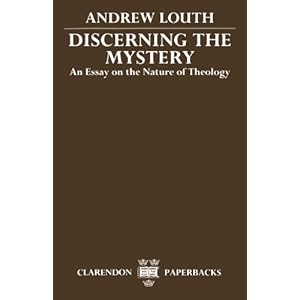Some more thoughts on Sola Scriptura, and the notion of "the religion of the book."
"Christianity is not, properly speaking, a 'religion of the Book': it is a religion of the word (Parole)—but not uniquely nor principally of the word in written form. It is a religion of the Word (Verbe)—'not of a word, written and mute, but of a Word living and incarnate' (to quote St. Bernard). The Word of God is here and now, amongst us, 'which we have looked upon, and our hands have handled': the Word 'living and active', unique and personal, uniting and crystallizing all the words which bear it witness. Christianity is not 'the biblical religion': it is the religion of Jesus Christ." - Henry de Lubac.
Thursday, April 21, 2011
Wednesday, April 20, 2011
Contra "Biblical Religion"

"the heart of Christianity is the mystery of Christ, and the Scriptures are important as they unfold to us that mystery, and not in and for themselves." - Andrew Louth
Louth here is not arguing that we should throw away our bibles, but rather that the interpretive principle of Sola Scriptura goes against tradition. From "Discerning the Mystery, an Essay on the Nature of Theology." The chapter on the "Recovery of Allegory" alone is worth the whole book.
One may be indifferent to the concept of Christianity as a Biblical Religion, or dismiss this as the obsession of ivory tower theologians (like, "who cares?"), however it is more important as it may at first appear. For classic Christianity the Scriptures are not the final arbiter, the all in all that interprets itself, the yardstick by which all else is measured. It is rather a treasury, understood and used within the community of believers, within a larger consensus of interpretation. Understood to stand on its own, interpreting itself, a la Sola Scriptura, it pushes aside the interpretation of the Fathers to favor an Enlightenment approach to truth, namely that truth can be found and understood independently from tradition. Christianity thus unanchored from the consensus patrum becomes something different altogether, its claims of being "biblical" notwithstanding.
Subscribe to:
Comments (Atom)